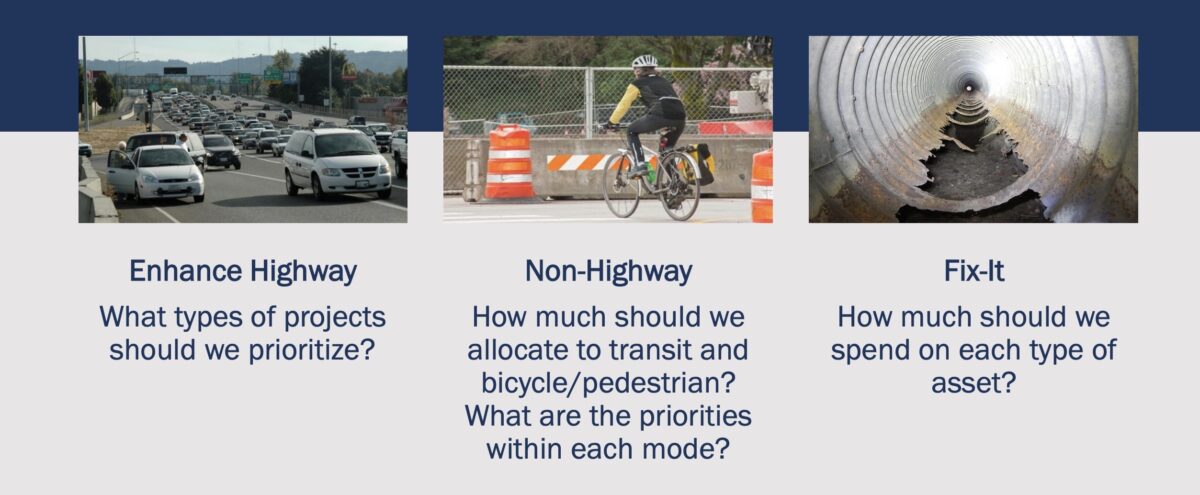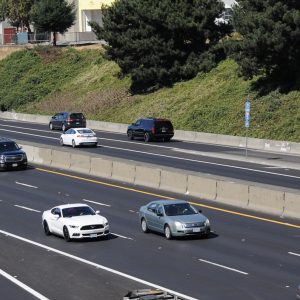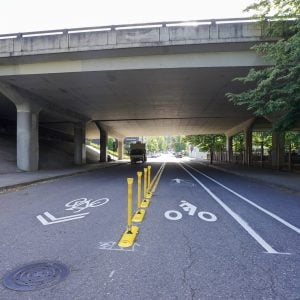
(Source: ODOT)
“Non-Highway”.
Did you know that’s the official Oregon Department of Transportation parlance for the category of spending that includes bicycling, walking, and public transit infrastructure?
“I agree it’s not ideal.”
— Travis Brouwer, ODOT Deputy Director of Revenue and Finance
Non-Highway.
It’s uninspiring. It defers so much to “highway” it’s almost offensive. It does nothing to boost the political power or public image of these beautiful, life-affirming modes of transportation and it certainly doesn’t match their inherent (dare I say revolutionary) potential. Ask yourself: Would any powerful policymaker or elected official — especially ones from rural places — have the guts to cast a vote that aggressively prioritizes Non-Highway spending over categories with bread-and-butter names like “Enhance Highway” or “Fix-It”?
This has been on my mind as I cover the current debate around STIP spending. When I shared something about it today on Twitter, I cc’d Travis Brouwer, ODOT’s Deputy Director of Finance and Revenue. He’s a smart and open-minded guy who actually engages online (thanks Travis!) so I figured it was worth a shot.
Advertisement
Turns out Brouwer’s open to a new name. “I agree it’s not ideal,” he typed in a reply.
I suggested “Bike/Ped Enhance” (better yet, “Bike/Walk Enhance”) and “Active Enhance” to put the category on equal footing with the all-powerful “Enhance Highway” moniker.

(Photo: Jonathan Maus/BikePortland)
Let’s come up with more ideas. To help get your creative juices flowing, here’s how ODOT defines the Non-Highway category:
Non-highway funding supports biking, walking, public transportation, transportation options/transportation demand management projects, investments and programs. Mandatory biking and walking funding is included per the Bike Bill (ORS 366.215). Other funding is discretionary and support off-system paths, elderly and disabled transit service and more.
Our friends at No More Freeways said the new name should prioritize climate. “That way it’s abundantly clear whether ODOT is serious about redirecting policies/revenue to honor a commitment to not burning down the state,” they said.
How about “Enhance Climate”?
No name will be perfect, but anything would be better than a non-name.
— Jonathan Maus: (503) 706-8804, @jonathan_maus on Twitter and jonathan@bikeportland.org
— Get our headlines delivered to your inbox.
— Support this independent community media outlet with a one-time contribution or monthly subscription.







Thanks for reading.
BikePortland has served this community with independent community journalism since 2005. We rely on subscriptions from readers like you to survive. Your financial support is vital in keeping this valuable resource alive and well.
Please subscribe today to strengthen and expand our work.
Expanding Travel Options
Active mobility/climate crisis enhance
You are naively fooling yourself if you think that a majority of the “non-highway” funding is going towards bike, ped, and transit infrastructure. When an agency or jurisdiction is using a new bike lane or set of sidewalks to justify rebuilding an expensive highway like outer Powell, as ODOT is in fact doing, you are still building a highway, far and away the most expensive part of the project, all with “non-highway” funding.
You need to dig a lot deeper and find out EXACTLY how much of the “non-highway” funding is actually going directly towards bike, ped, and transit infrastructure. By renaming it as something ‘bike’, ‘ped’, ‘alternate’, or some other utter garbage, you are directly contributing and participating in the worst sort of Orwellian double-speak, of giving highway funding a veneer of looking like something that is going to reduce global warming, when in fact it’s helping drivers to drive faster.
“The Stroad Foundation”
I like Climate/Multimodal
Ugh on ‘Highway’ because I’m not clear what that term even means. I ride on TriMet buses (public transit infrastructure) that use ‘highways’ (I-405, etc.). I assume ODOT has a legal definition for ‘highway’ and can make the distinction between that term and ‘expressway’ and ‘road’ and so forth.
But double-ugh on ODOT’s ‘Non-Highway’ category definition because it excludes other forms of active/human-powered transportation; e.g., wheelchairs, scooters, skateboards.
I favor a variant of ‘active […]’ as some have suggested, but I suppose that could technically exclude some e-micromobility transportation options now available.
But let’s not use ‘Ped’ anywhere.
Yes! I agree no more “ped”. Can’t believe I let Bike/Ped slip out of my internal editor. Guess I was trying to speak ODOT language. “Bike/Walk Enhance” or how about just “Bike Walk Transit”?
Thanks, Jonathan.
I suggest Climate Focus. “Enhance” is a bad name for any category since it’s too subjective. The Enhance category should be renamed Highway Focus.
Great point about “Enhance” being subjective. It has the same problems as “improvement”. I like your idea about “Focus” instead.
“Future Focused: inclusive investments in safe and efficient travel for every Oregonian”
Magical Modal Mystery Tour
A “Reduced Extinction” option maybe?
https://www.un.org/sustainabledevelopment/blog/2019/05/nature-decline-unprecedented-report/
I don’t know, given the love affair with highways, some might mis-construe “F*** highways” to mean it’s intended exactly for building them.
“Feel Good Funding”
How about “low-carbon transportation” or “low-impact transportation” or “vulnerable-road-user transportation.”
Priority: safety. Keep pedestrians off on and off ramps. Vehicle occupants can be seriously injured from chain reaction resulting from avoidance maneuvers made to avoid colliding with with trespassing transients on the freeway.
Common Sense?
I don’t have suggestions, but that example image is anything but an ‘enhanced’ highway…
Traffic Reduction
Human-scaled
They should aggressively investigate and participate in prosecution of vandals for theft of service and graffiti and invest in technology and security services to monitor such activity. You’d notice relative absence of transient and crime activity in places where it is visible on Tripcheck cameras. Protect the asset. Don’t let highway easements be the feeding ground for social enterprises that are dependent on c-ridd-ly activities.